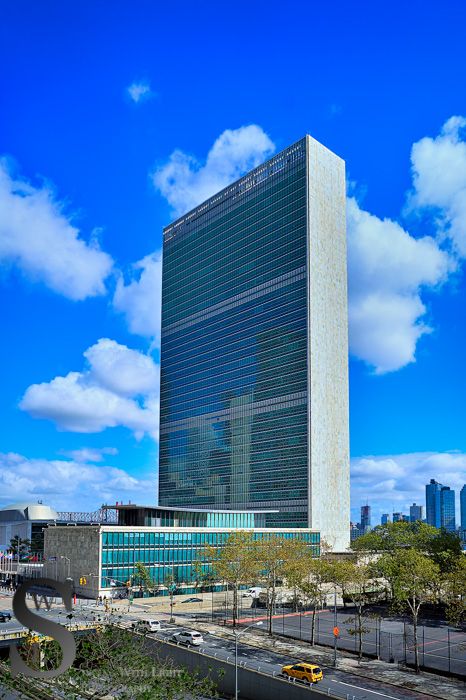A slew of recent reviews, such as the high level panel on UN peace operations report (HIPPO report), the 2015 review of the UN peacebuilding architecture and the 2030 agenda for sustainable development, have all put people at the front and center of the international community’s efforts to bring about peace, security and development. These reports focus on the need for responsive, inclusive, participatory and representative political settlements to achieve sustained peace.
This follows increasing criticism that the UN and other international peacebuilders are more focused on placating national elites and their masters at headquarters in New York, Brussels and Washington, rather than the people they are mandated to protect. Séverine Autessere and other scholars argue that international peacebuilders are more intent on following their professional prescripts than responding to local needs, focusing on tangible outputs such as buildings, institutions, laws and technical assistance, resulting in a top-down approach. These critics argue that the UN should instead focus on helping establish more accountable, inclusive and responsive states that can respond to the needs and views of the people. These need to be articulated by the people through formal, as well as informal political institutions. To really help people and the states they live in, UN peace operations must respond to the challenges facing these states of fragility by fostering more inclusive and responsive societies.
What Has The UN Been Doing?
The focus on protection of civilians (PoC) has undoubtedly had a positive impact on the willingness and ability of UN peacekeeping to take a more people-centred approach over the last decade or so. However, as Jean Arnault also convincingly argues, a spinoff effect is that missions have been mandated to protect civilians in a robust manner, often without a corresponding long-term political strategy. Although the PoC strategy has three pillars, the main focus has been to protect civilians from physical violence, with an emphasis on military capabilities and the willingness to use them (or the lack thereof).
On the positive side, this has also increased attention at UN headquarters to what peace operations do at local levels. For instance, it has led to the inclusion of new capacities to better understand local conflict dynamics and perceptions. One example includes the community liaison assistants and the community alert networks first deployed by UN stabilization mission in the Democratic Republic of Congo and now being rolled out in several other missions. Another example is the set of guidelines on understanding and integrating local perceptions issued by the UN Department of Peacekeeping Operations (DPKO) in 2014. DPKO is currently also working on a set of guidelines for supporting and enhancing state/society relations at the local level.
A third example is the UN peacekeeping mission in South Sudan, UNMISS, which began setting up Country Support Bases before the crisis in 2013. These bases should enable improved state presence and service delivery on the local level. UNMIL in Liberia serves as a fourth example, having set up Justice and Security Hubs and County Security Councils that increased the presence of national authorities on local levels and facilitated the transition and exit of the peacekeeping mission.
Responding To The Needs Of People In Conflict
The HIPPO report argues for “a renewed resolve on the part of UN peace operations personnel to engage with, serve and protect the people they have been mandated to assist” (p. viii). Conflict-affected countries more often than not also struggle with centre-periphery tensions, along with a self-serving elite that knows how to engage with and influence international actors, but who neither necessarily represent, nor have the best interest of the general population in mind.
The main interlocutor in peacekeeping and peacebuilding is the host state, and states are the primary units of the UN. The focus on strengthening state authority is thus an inbuilt reflex of the system. Host states may thus view efforts to consult more broadly and deeply as infringements on their sovereignty. For peacebuilding and peacekeeping efforts to succeed, however, it is absolutely necessary to build more inclusive and participatory states that are responsive and accountable to their people. In tandem, it is crucial to build institutions and trust in those institutions. Missions need to support inclusive politics but also more inclusive economics. As the former Special Representative of the Secretary-General in Liberia, Karin Landgren, convincingly points out, there is a need to move away from an enclave economy that only benefits a small elite.
The key tenet of the HIPPO report and the peacebuilding review has been the primacy of politics – and politics that is grounded in the will and needs of the people of conflict-affected countries on national and local levels. As the peacebuilding review points out, the engagement of external peacebuilders − focusing their efforts on building national capacity and extending state authority − can add tension rather than build peace: “in a context of fragmentation, it is possible that an attempt to rebuild or extend central authority could lead not to peace but to deepening conflict” (p. 16).
The Secretary-General’s follow-up report to the HIPPO argues that the UN should be “more responsive and more accountable to the needs of countries and people in conflict” (p. 3). This was also singled out by the Secretary-General as one of three key priorities at the launch of the report. The follow-up report goes on to deal with expectation management and strategic communications to “foster public support”, but this is only part of the picture. To achieve inclusive political settlements, people need to be consulted and feel consulted, not only informed. However, there is little in the report on how UN peace operations should be more accountable to people’s needs. This is disappointing, as the HIPPO raised expectations for a more reflective stance on the topic.
So How Should Peace Operations Become More People-oriented?
UN peacekeeping operations have long had significant presence outside of the capitals of the countries they are deployed to. Their civil affairs officers have often been the only presence in remote locations, and in some countries such as Kosovo and East Timor, the UN missions have been the government on the ground.
Civil affairs officers, military liaison officers, gender advisors and in recent years community liaison assistants can all reach out and talk with local communities and their representatives. When doing this, missions need to be careful to not only talk with elites, but also to identify credible voices among youth, women and civil society, as well as traditional, religious and academic leaders. A frequent challenge faced is that the same person can be a traditional leader, a businessman and a member of an armed group. Officials may not be the most influential members of society, and could have much to gain from the legitimacy that external peacebuilders confer. Extra care should thus be taken not to appear partial only to local authorities. It is vital to reach out to minorities and those who may not be represented.
Missions could, and should, use experts, social anthropologists and others who have a deeper knowledge of the country. Community liaison assistants and community alert networks are useful new innovations, National professional officers have always been a valuable source of knowledge and analysis, and can act as brokers between the mission and local communities when appropriate. Surveys should be carried out at regular intervals to establish baselines for monitoring of opinions and progress, and building appropriate plans on the results. New tools and technologies have made it easier to do quick opinion polls and offer a way to better understand the needs and challenges of affected populations.
Currently, the civil affairs section of the Department of Peacekeeping Operations is working on a set of guidelines to improve engagement with local populations. Reflecting the concern highlighted in the peace operations and peacebuilding reviews, the language is shifting from the standard mandate of “extending state authority” to “enhancing and supporting local-level state/society relations”.
As Cedric de Coning, Paul Troost and I argue in an article in the Stability journal, this work needs further support from member states, civil society and other stakeholders if they want peace operations to succeed in states emerging from conflict. Should UN peace operations address issues of state/society relations, such as inequality, marginalization and lack of social cohesion? Some member states would probably answer no to this question. However, in order to succeed with the task of sustaining peace in their countries, the answer is undoubtedly yes.
The task is far from easy. Exclusion, discrimination and instrumentalized politics are often at the source of the conflict, and strong interests would like to keep it this way. Leadership may be under duress because of long-time resource and capacity constraints, which also increases the chance of leaders falling prey to corruption, collusion with organized crime and self-serving maintenance of the status quo.
Toward People-Centred Peacekeeping?
When member states meet next week to discuss future UN peace operations, they should acknowledge and respond to the challenges that the HIPPO report and the peacebuilding review have identified, and the proposals they have made for how to better include the needs and aspirations of people affected by conflict.
UN peace operations cannot continue to be the option of last resort, muddling through on a minimum of resources and responding to the needs of members of the UN Security Council. Peace operations need to be perceived to be doing something, responding to and dealing with the actual needs of the people and the root causes of conflict. Politics must take primacy, as the HIPPO panel has proclaimed. That dictum should be heeded by member states in the discussions during the next month, in respect of the people who still await peace on the ground.
The Secretary-General’s report does mention in several instances the obligation to heed the needs and aspirations of the people. The list of issues it should ideally cover is endless, and other important dimensions of peace operations have fared no better. Nevertheless, the fact that the report picks up on this component should be seen as a will to improve in this particular area. To help the UN succeed, it is necessary to continue to push and support UN peacekeepers and peacebuilders in their pursuit of more people-oriented peace operations, not only by developing guidelines but also by putting these into practice. This will greatly improve the chances of success for peacekeeping operations, and provide more value for money for their funders too.
John Karlsrud is a Fulbright Scholar and Visiting Fellow at Center on International Cooperation, NYU and Senior Research Fellow and Manager, Training for Peace programme, Norwegian Institute of International Affairs (NUPI). His latest articles include ‘Towards More People-Centric Peace Operations: The Need for a Shift in Mandates from the ‘Extension of State Authority’ to ‘Strengthening State-Society Relations’ in Stability, and ‘The UN at War: Examining the Consequences of Peace Enforcement Mandates for the UN Peacekeeping Operations in the CAR, the DRC and Mali’ in Third World Quarterly. | Twitter: @johnkarlsrud



